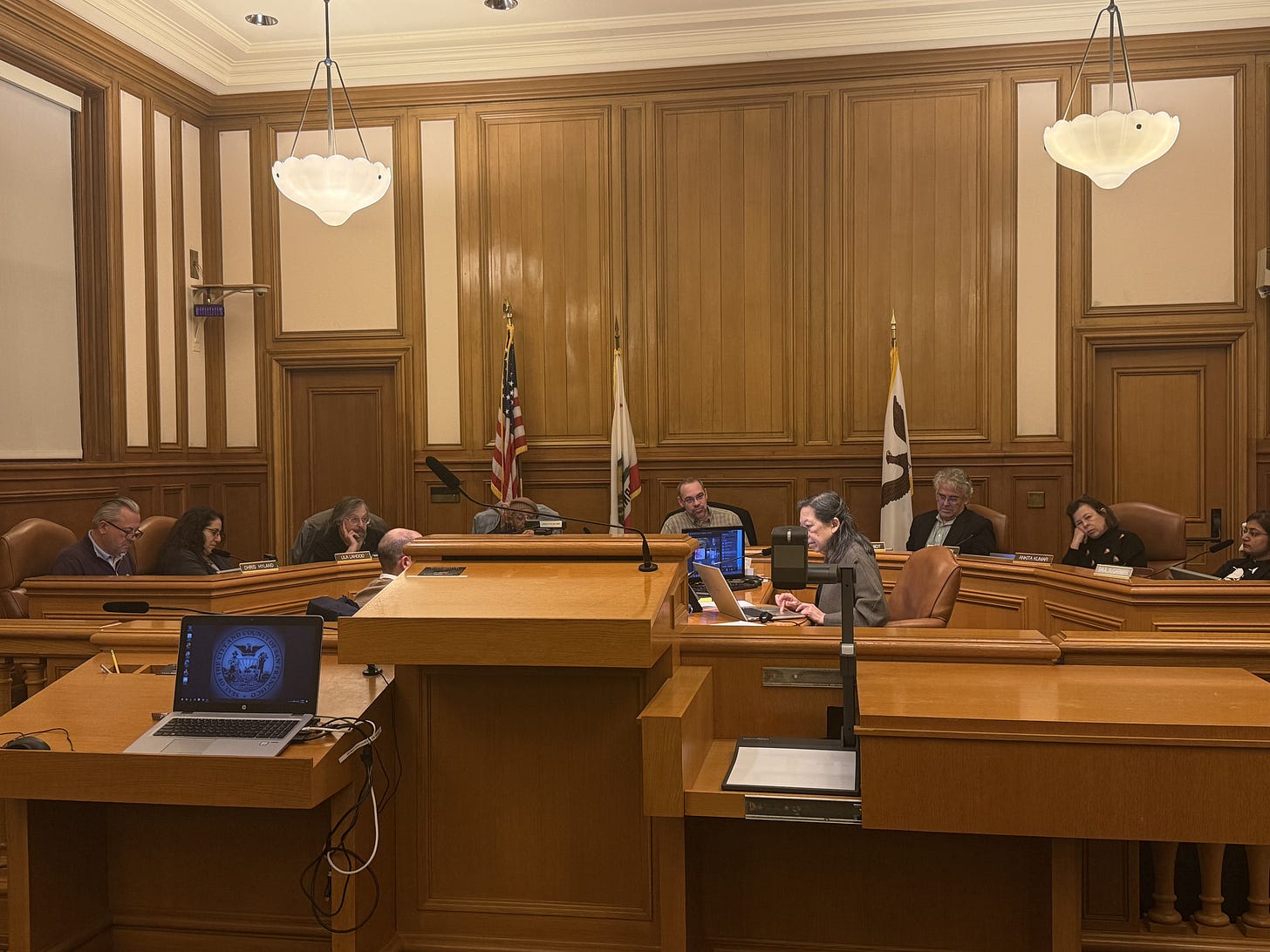San Francisco Zoo Continues to Violate SF and State Laws — and Its Own Lease Agreement with the City
San Francisco Zoological Society Leadership Evades Accountability, Hides Mismanagement, and Violates Public Trust

Late last night, I found myself once again in front of the San Francisco Sunshine Ordinance Task Force. The topic? A problem that’s been festering for years: the San Francisco Zoological Society’s blatant disregard for public transparency laws, state regulations, and even its own legally binding lease agreement with the City and County of San Francisco.
A Culture of Secrecy and Defiance
In July 2024, I submitted a public records request seeking critical documents from the San Francisco Zoo, including the 2022 Association of Zoos and Aquariums (AZA) accreditation report. This report is typically 35 to 55 pages long, filled with evaluations that provide insight into zoo operations, animal welfare, and management practices. What did I receive after a long time of waiting? One single page—a glowing review of the Zoo’s CEO, Tanya Peterson.
This isn’t just an administrative oversight. It’s a deliberate act of evasion. The City of San Francisco owns the zoo and all its animals. The Zoological Society simply manages it, receiving over $4 million annually in public funding to do so. Despite this, they behave like a private entity, shielding themselves from public accountability.
The 85-page lease agreement between the city and the Zoological Society is clear. Section 16.2 explicitly states that the Zoo must provide public access to records as if it were still operated directly by the city. That means complying with the Sunshine Ordinance and the California Public Records Act. Yet, for over 15 years, they’ve refused to do so.
This isn’t a new issue. The Task Force found the Zoo in violation of transparency laws in 2008 and again in 2019. Tanya Peterson, still at the helm, has led an entrenched culture of secrecy that undermines public trust and hides what’s really happening inside the Zoo’s walls—mismanagement, financial irregularities, and systemic issues in animal neglect.
The Task Force’s Findings
At the hearing, the Zoo didn’t even bother to send a representative—again. This speaks volumes about their attitude toward both the law and the public. But despite their absence, the Task Force didn’t hold back.
In a decisive 9 to 1 vote, the Task Force concluded that the San Francisco Zoological Society had violated the Sunshine Ordinance due to the following reasons:
Failing to respond to public records requests in a complete and timely manner (a violation of Section 67.21(b)).
Refusing to send an authorized representative to the hearing (a violation of Section 67.21(e)).
They ordered the Zoo to turn over the requested records within five calendar days and said next steps could be turning the case to both the Ethics Commission and the Board of Supervisors for further investigation. This is critical because the issue isn’t just about paperwork—it’s about accountability. The Zoo’s leadership has operated with impunity for far too long, enabled by a lack of enforcement from city officials.
Why This Matters
This isn’t just about the San Francisco Zoo. It’s about the integrity of public institutions. When a taxpayer-funded organization refuses to follow transparency laws, it raises serious questions:
What are they hiding?
How are they managing public funds?
What’s happening behind the scenes with animal welfare, staff treatment, and financial management?
Former and current Zoo employees have come forward with alarming allegations of corruption, mismanagement, and a toxic workplace culture. Yet, without public access to records, these issues remain hidden from view. Transparency isn’t optional. It’s the law.
An Ongoing Fight: The Joint Zoo Committee Complaint
While my primary focus was the Zoological Society, I also filed a separate complaint against the San Francisco Joint Zoo Committee—the supposed oversight body for the Zoo. They have breached several key transparency laws, significantly impacting public participation and accountability. Here are the main issues:
Limited Public Comment Opportunities: They've consistently failed to provide adequate opportunities for public comment during meetings, restricting meaningful community input.
Obstructing Public Recording: In a notable incident, ABC 7 News was ordered to stop filming during a public session in November, limiting transparency and public record keeping.
Poor Management of Meeting Minutes: The minutes from meetings are often mismanaged, with important public feedback being omitted or distorted, which skews the representation of community sentiments and concerns.
Interference During Public Comment: Committee members have overstepped by making excessive clarifications or posing questions during public comment periods, which interrupts and diminishes public contributions. Additionally, there are instances where committee members have commented on items not listed on the agenda, further disrupting the meeting's structure.
The Task Force found these violations credible and has referred the matter for further review. It’s clear that the very body tasked with overseeing the Zoo is failing in its duties, serving more as a shield for the Zoological Society than as an advocate for transparency.
What’s Next?
The Task Force’s rulings are a step forward, but the fight isn’t over. The Zoological Society’s defiance of public records laws is part of a larger problem—one that includes financial mismanagement, unethical leadership practices, and systemic neglect within the Zoo itself.
The Board of Supervisors and the Ethics Commission must act. The Zoo’s leadership, particularly Tanya Peterson, must be held accountable. Transparency isn’t just about compliance—it’s about protecting the animals, the staff, and the public’s trust.
For too long, the San Francisco Zoo has operated in the shadows. It’s time to shine a light.
.


